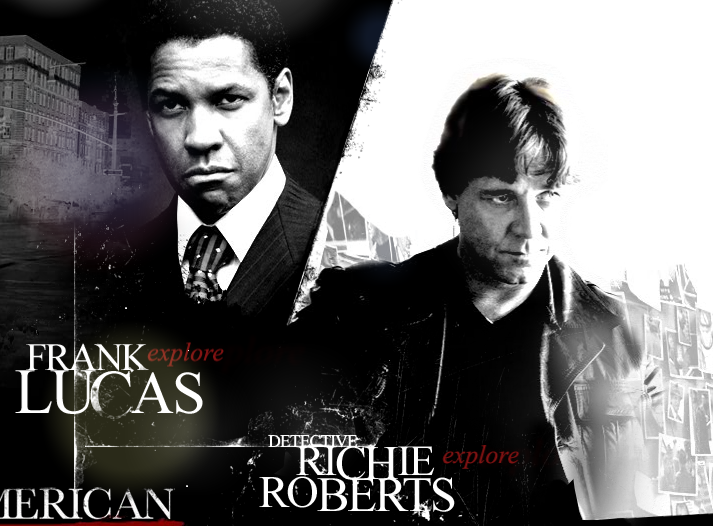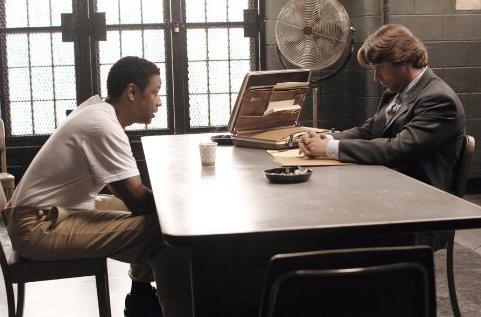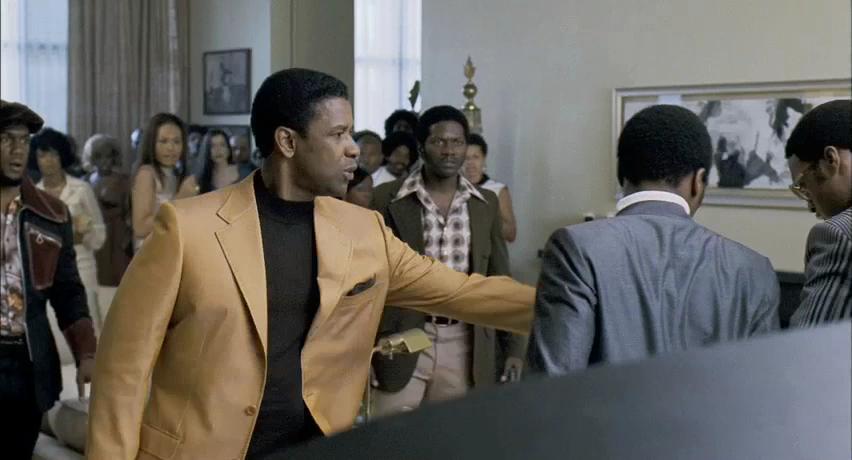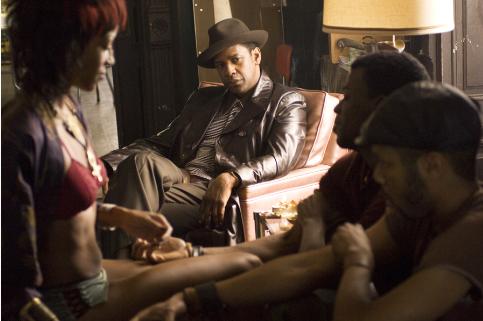
Editor's Note: "American Gangster" is brilliant cinema that unfortunately gives the wrong impression that blacks are the main players in America's drug problems. NAM Associate Editor Earl Ofari Hutchinson is an author and political analyst. His new book is "The Latino Challenge to Black America: Towards a Conversation between African Americans and Hispanics" (Middle Passage Press).

"American Gangster" is a big, brash and brilliant cinema tour de force. But it also reinforces a glaring stereotype one of America's most enduring stereotypes that the drug problem and drug kingpins come with a black face.
There are two telling scenes in "American Gangster" that drive that point home with a tormenting vengeance.

The first is near the end of the film when intrepid cop Richie Roberts (Russell Crowe), whose sole mission is to nail black drug lord Frank Lucas (Denzel Washington), faces off with the busted Lucas in a police interrogation room. He indignantly lectures Lucas that his dope peddling has spread death and destruction that wrecked and ruined hundreds of lives. In the second scene there is a fleeting glimpse of a white soldier shooting up heroin in a servicemen's hangout in Bangkok, Thailand. Other than that scene and a quick look at a white junkie getting whacked by Lucas, there's no hint that the drug racket and the gangsters that run it bribing cops and politicians, and putting an army of small time dealers and bagmen and women on the street are anything but African Americans.

Washington invests in Lucas a chilling mix of charm, business savvy and raw brutality. That further reinforces the notion that a black man can be bigger, smarter, and more audacious than the organized crime racketeers that in decades past ran and still largely run the drug trade in America. They are the ones who hold an iron grip on the foreign growers and suppliers, the transport, street distribution, and the network of banks that launder the dirty money.
The Centers for Disease Control and Prevention's survey on the sex and drug habits of Americans last June further tossed the ugly glare on who controls and uses drugs in America. The survey found that whites are much more likely to peddle and use drugs than blacks. Non-Hispanic whites had a higher percentage of using cocaine or street drugs (23.5 percent) than blacks (18 percent).

Other studies have found roughly equal rates of drug use by blacks and whites. But what made the CDC survey more eye-catching is that it didn't solely measure generic drug use, but singled out the use of cocaine and street drugs the kind of drugs depicted in "American Gangster."
The findings fly in the face of the conventional drug war wisdom that blacks use and deal street drugs while whites use trendy, recreational designer drugs, and that these presumably include powder cocaine. That once more calls into question the gaping disparity in drug sentencing between whites and blacks.

More than 70 percent of those prosecuted in federal courts for drug possession and sale (mostly small amounts of crack cocaine) and given stiff mandatory sentences are blacks. Though the Supreme Court recently agreed to review the disparities in drug sentencing, it hasn't ruled yet and won't for many months. The majority of those who deal and use crack cocaine aren't violent gang members, but poor, and increasingly female, young blacks. They need help, not jailing.

But that's the morality tale theme that heavily underpins "American Gangster." If you're black and you use drugs you'll either die, become a walking zombie, or rot behind bars. And more than likely the guy that sells the junk will skip away scot-free, live a princely lifestyle, retire with fabulous wealth and, if unlucky enough to get popped, cut a deal to rat out crooked cops or competitors. Lucas did just that and, considering the very real death and destruction that he spread, he waltzed away with a relative hand slap sentence. Then he gives the supreme self-serving rationale for the dirty dealing by wailing that if he didn't do it, somebody else would.
However, the real drug boss rarely looked like him. In fact, Lucas and his black competitor Nicky Barnes (who has a cameo role in the film and is the subject of a recently release documentary, "Mr. Untouchable") are the rarest of rare birds. In the movie, Lucas is portrayed as a black drug boss who supposedly topped the mafia for control of the drug business in Harlem. Through cunning and dumb luck, he found an opening in the Vietnam War, a willing, strategically placed accomplice among the black soldiers in Vietnam, and a supplier to get him the drugs and help with the transport.

It all adds up to one thing: The public scapegoat of blacks for America's drug problem during the past two decades has been relentless, and the at-all-costs hunting down by Richie (Crowe) of Lucas (Washington) in "American Gangster" is a stark testimony to that relentlessness.
The greatest fallout from the nation's hopelessly flawed and failed drug hunt for scapegoats is that it makes it easy for on-the-make politicians to grab votes, garner press attention, and bloat state prison budgets to jail more black offenders, while continuing to feed the illusion that the drug war is winnable. Unfortunately, "American Gangster" won't do anything to change that illusion. (source: http://news.newamericamedia.org/news/view_article.html?article_id=a2edb50c78631dd445454a00ce410d87)
No comments:
Post a Comment